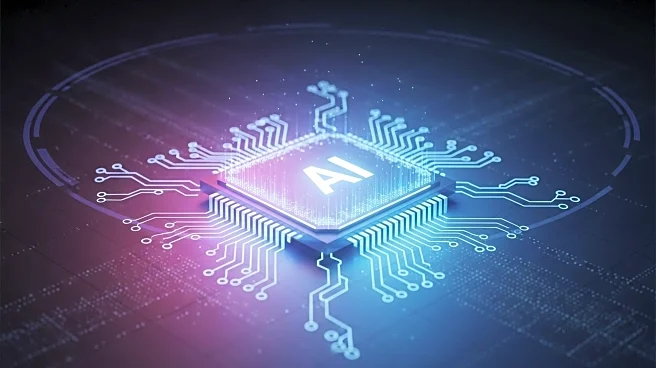What is the story about?
What's Happening?
The AI Workforce Consortium, led by Cisco and including major industry players like Accenture, Google, IBM, and Microsoft, has released a report highlighting the growing integration of AI skills in Information and Communication Technology (ICT) roles. The report, titled 'ICT in Motion: The Next Wave of AI Integration,' reveals that 78% of ICT roles across G7 countries now require AI technical skills. The study identifies seven of the ten fastest-growing ICT roles as AI-related, including positions such as AI/ML Engineer and AI Risk & Governance Specialist. The Consortium aims to address critical skills gaps in areas like generative AI, AI ethics, and security, while also emphasizing the importance of human skills such as communication and leadership. The report is based on job posting data from July 2024 to June 2025 and underscores the rapid transformation of the job market due to AI advancements.
Why It's Important?
The findings of the AI Workforce Consortium are significant as they highlight the pervasive influence of AI on the job market, particularly in the technology sector. As AI roles dominate tech market growth, there is an increasing demand for specialized skills, which could lead to a shift in educational and training priorities. The Consortium's commitment to upskilling and reskilling 95 million individuals worldwide over the next decade is crucial for ensuring that the workforce is prepared for the AI-driven future. This shift not only impacts job seekers but also organizations that must adapt to new technologies and integrate AI into their operations responsibly. The emphasis on AI ethics and governance skills reflects the need for expertise at the intersection of technology, law, and ethics, which is vital for maintaining public trust and ensuring responsible AI adoption.
What's Next?
The AI Workforce Consortium plans to introduce resources such as an AI Workforce Playbook, updated learning recommendations, and an AI Skills Glossary to empower workers and organizations. These tools aim to align workforce development with business and AI goals, addressing skill gaps for secure and responsible AI adoption. As AI continues to reshape economies and societies, the Consortium's initiatives will play a key role in preparing the workforce for future challenges. Organizations are expected to invest in upskilling their employees to meet the rising demand for AI skills, while governments may need to collaborate with the private sector to enhance digital and AI literacy.
Beyond the Headlines
The rapid integration of AI skills into ICT roles raises ethical and governance concerns that organizations must address to avoid potential risks. The focus on human skills alongside technical expertise highlights the importance of balancing technological advancements with human-centric approaches. This balance is essential for fostering innovation while ensuring ethical standards are maintained. The Consortium's efforts to standardize AI skills across education, industry, and policy could lead to long-term shifts in how AI is perceived and utilized, potentially influencing global governance and societal norms.

















